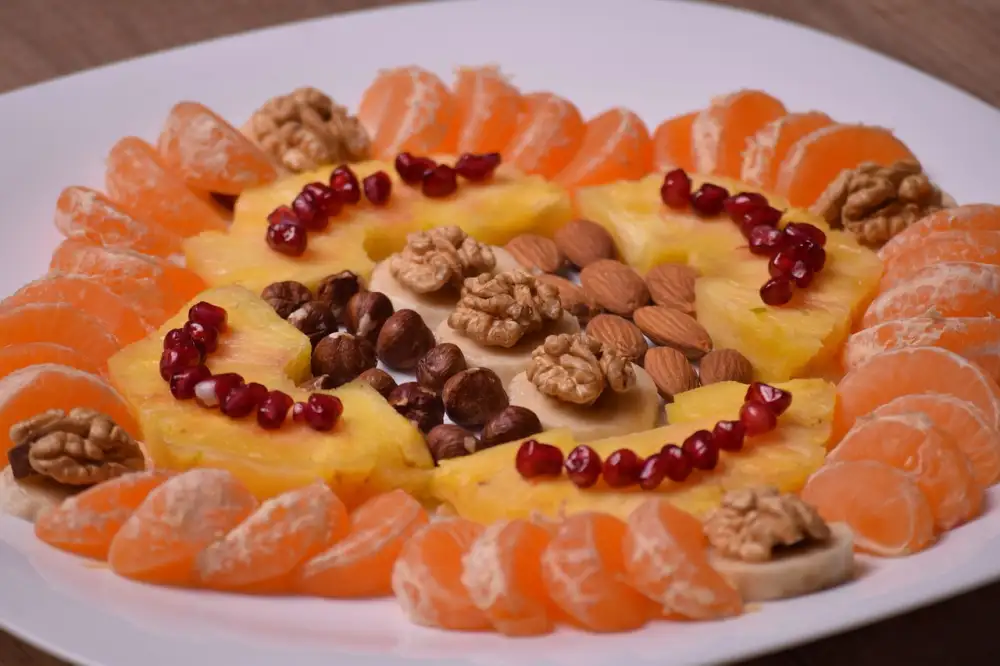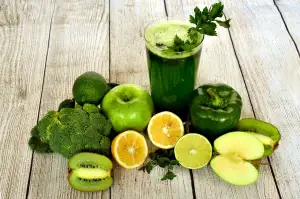Delicious and Nutritious: Discover the Best Healthy Meals for Weight Loss

- Incorporating Lean Proteins into Your Diet
- Emphasizing Fiber-Rich Foods for Satiety
- Including Healthy Fats for Balanced Nutrition
- Opting for Whole Grains for Sustained Energy
- Incorporating Plenty of Fruits and Vegetables
- Choosing Low-Calorie Cooking Methods
- Limiting Added Sugars and Processed Foods
- Hydration and its Role in Weight Loss
When it comes to weight loss, the importance of healthy meals cannot be overstated. While exercise is essential, what you put into your body plays a significant role in achieving your goals. A well-balanced diet not only helps shed unwanted pounds but also provides the necessary nutrients for overall health and well-being. By making smart choices and incorporating nutritious foods into your daily meals, you can embark on a journey towards sustainable weight loss while still enjoying delicious flavors. So let's dive in and discover the best healthy meals that will help you reach your weight loss goals without compromising on taste or satisfaction.
Incorporating Lean Proteins into Your Diet
Incorporating lean proteins into your diet is essential for weight loss. Not only do they help build and repair muscle, but they also keep you feeling full and satisfied. Opt for lean sources such as chicken breast, turkey, fish, tofu, and legumes. These options are low in calories and high in nutrients. Try to include a serving of lean protein in each meal to support your weight loss goals.
Emphasizing Fiber-Rich Foods for Satiety
Emphasizing fiber-rich foods is crucial for weight loss as they provide a feeling of fullness and help control cravings. Incorporating foods like whole grains, legumes, fruits, and vegetables into your meals can increase your fiber intake. These foods not only keep you satisfied for longer but also aid in digestion and promote a healthy gut. So, make sure to include plenty of fiber-rich options in your diet to support your weight loss journey.
Including Healthy Fats for Balanced Nutrition
When it comes to weight loss, many people tend to avoid fats altogether. However, not all fats are created equal. In fact, incorporating healthy fats into your diet is essential for balanced nutrition and overall health.
Healthy fats, such as those found in avocados, nuts, and olive oil, provide a feeling of satiety and help regulate blood sugar levels. They also play a crucial role in nutrient absorption, as certain vitamins are fat-soluble and require the presence of healthy fats to be properly absorbed by the body.
Including these healthy fats in your meals can also help you stay satisfied for longer periods of time, reducing the likelihood of overeating or reaching for unhealthy snacks. So don't shy away from adding a drizzle of olive oil to your salad or enjoying a handful of almonds as a snack – these small additions can make a big difference in your weight loss journey.
Remember, moderation is key when it comes to consuming healthy fats. While they offer numerous benefits, they are still calorie-dense. So be mindful of portion sizes and incorporate them into a well-balanced meal plan that includes lean proteins, fiber-rich foods, whole grains, fruits, and vegetables.
By including healthy fats in your diet, you not only enhance the flavor and satisfaction of your meals but also promote optimal nutrition for sustainable weight loss.
Opting for Whole Grains for Sustained Energy
When it comes to weight loss, opting for whole grains is a smart choice. Whole grains are packed with fiber, vitamins, and minerals that are essential for a healthy diet. Unlike refined grains, such as white bread and pasta, whole grains retain their natural bran and germ, making them more nutritious and filling.
Whole grains provide sustained energy throughout the day, preventing spikes in blood sugar levels that can lead to cravings and overeating. They also promote digestive health by aiding in regular bowel movements.
To incorporate whole grains into your meals, choose options like brown rice, quinoa, whole wheat bread and pasta, oats, and barley. These foods can be easily substituted for their refined counterparts in recipes without sacrificing taste or texture.
Start your day with a hearty bowl of oatmeal topped with fresh fruits or nuts. For lunch or dinner, swap white rice or pasta with brown rice or whole wheat pasta. Experiment with different types of whole grains to keep your meals interesting and varied.
Remember to read food labels carefully when purchasing packaged products to ensure they contain whole grain ingredients. Look for terms like "whole wheat," "whole grain," or "100% whole" on the packaging.
By opting for whole grains in your diet, you not only support weight loss but also improve overall health by providing your body with essential nutrients and sustained energy throughout the day.
Incorporating Plenty of Fruits and Vegetables
Incorporating plenty of fruits and vegetables into your diet is essential for weight loss and overall health. These nutrient-dense foods are low in calories but high in vitamins, minerals, and antioxidants. They provide a wide range of flavors and textures to keep your meals interesting. Aim to fill half of your plate with colorful fruits and vegetables, such as leafy greens, berries, citrus fruits, bell peppers, broccoli, and carrots. Experiment with different cooking methods like grilling, roasting, or steaming to enhance the natural flavors of these delicious ingredients.
Choosing Low-Calorie Cooking Methods
When it comes to preparing healthy meals for weight loss, choosing the right cooking methods is crucial. Opting for low-calorie cooking techniques can help reduce the overall calorie content of your meals without compromising on taste. Instead of deep-frying or pan-frying, try baking, grilling, steaming, or sautéing your food with minimal oil or butter. These methods not only retain the natural flavors and nutrients of the ingredients but also help cut down on unnecessary calories. By making simple changes in your cooking habits, you can enjoy delicious and nutritious meals while achieving your weight loss goals.
Limiting Added Sugars and Processed Foods
Limiting added sugars and processed foods is essential for a healthy weight loss journey. These types of foods are often high in calories, low in nutrients, and can lead to cravings and overeating. Instead, focus on whole, unprocessed foods that are naturally sweet or savory. Choose fresh fruits for a sweet treat and opt for homemade meals using real ingredients. By reducing your intake of added sugars and processed foods, you'll not only support weight loss but also improve your overall health and well-being.
Hydration and its Role in Weight Loss
Hydration plays a crucial role in weight loss. Drinking an adequate amount of water helps to boost metabolism and promote fat burning. Additionally, staying hydrated can help control appetite and prevent overeating. Often, thirst can be mistaken for hunger, leading to unnecessary calorie consumption. By drinking enough water throughout the day, you can stay properly hydrated and reduce the chances of mistaking thirst for hunger. Aim to drink at least 8 glasses of water daily and consider incorporating hydrating foods such as cucumbers and watermelon into your meals. Remember, staying hydrated is not only important for overall health but also for achieving your weight loss goals.
In conclusion, creating a sustainable and nourishing meal plan is essential for successful weight loss. By incorporating lean proteins, fiber-rich foods, healthy fats, whole grains, fruits and vegetables into your diet, you can ensure that you are getting the necessary nutrients while keeping calories in check. Additionally, choosing low-calorie cooking methods and limiting added sugars and processed foods will further support your weight loss goals. Remember to stay hydrated throughout the day as well. With these strategies in place, you can enjoy delicious and nutritious meals that promote weight loss and overall well-being.
Published: 27. 12. 2023
Category: Health



